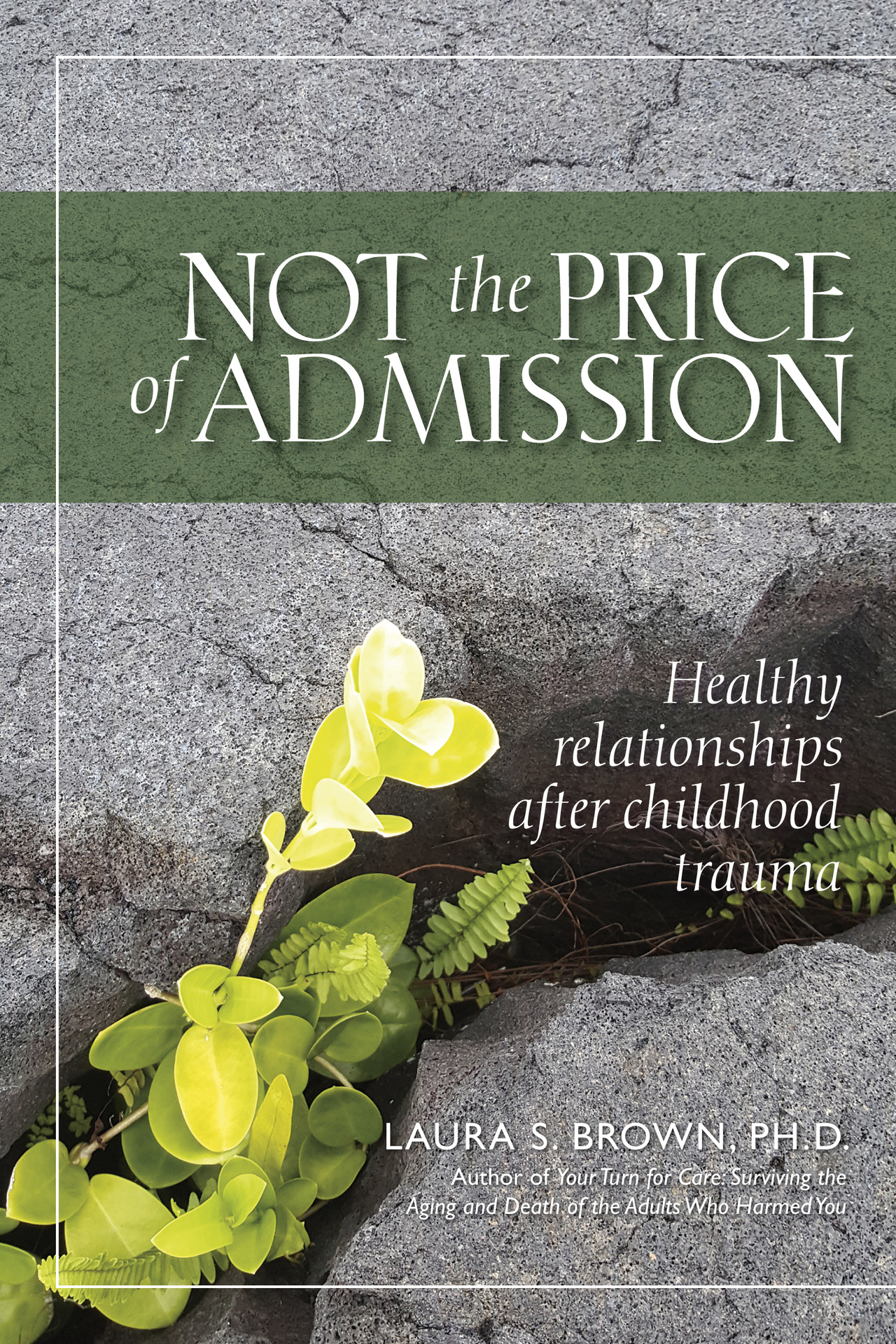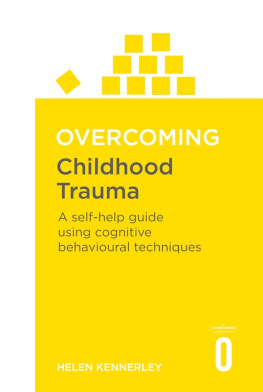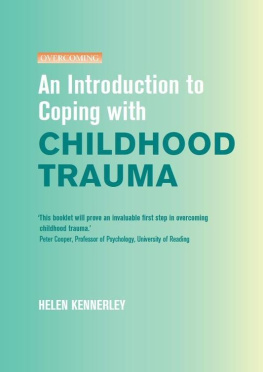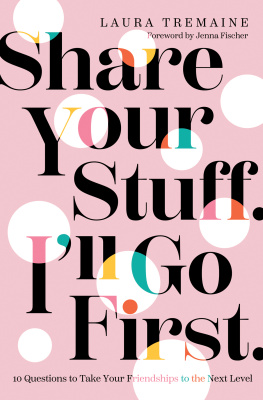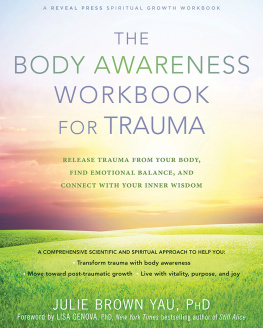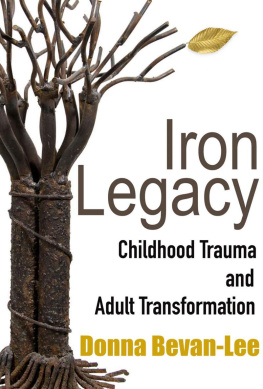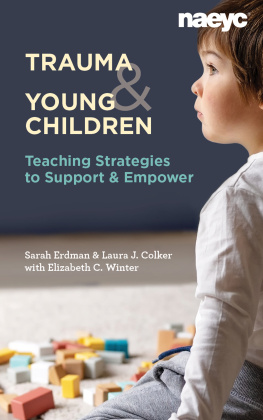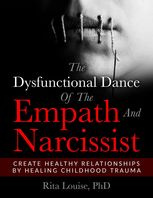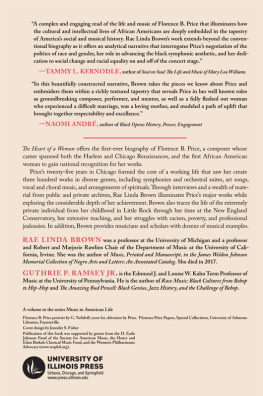ForwardAnd Onward
I had planned to spend Memorial Day weekend of 2015 working on the last chapter of a book that I had nearly completed during the previous months. I was going to send it off for reviews and comments and savor the experience of creation before taking some time to revise, edit, and publish later in the year.
That was this book. I didnt spend the weekend writing. Instead, I walked into my home that Friday evening after dinner with friends to find that thieves had been in the house. They stole many things that could be replaced, but took the one thing that I knew I could not simply order another one of from Amazonmy manuscript. I had carefully backed the book up on a flash drive and a laptop. The thieves took both devices.
One sleepless night later, I sat exhausted and grief stricken, wondering how I could possibly recreate the book. I dont make notes or an outline. Instead, I write books by gestating them in my brain, then dump the material into the keyboard over an intensive writing session. The ideas for the book had migrated to the page; I had no idea if I could ever find them again.
I tried to begin the grieving process. But I did not, could not, accept yet that I had no other options. I decided to hope against hope that I could lure the thieves into ransoming my flash drive back to me. I had an idea of who had invaded my home. The neighborhood I live in, known for being free spirited and open, has been plagued by a group of methamphetamine addicts who case houses for unlocked doors, break into cars, and steal packages off porches. I was fairly certain that they had been the ones in my house.
I took a picture of the stolen flash drive off the internet and used it to make posters, which I put up around the neighborhood. I targeted places where I knew that these folks went for cigarettes, sugar, and alcohol, and offered a no-questions-asked reward for the return of the lost flash drive.
My hunch proved correct. Five days later, a knock on my door introduced me to a disheveled young white man, misery streaming out of every pore of his being, who had a copy of the poster and the flash drive in his hand. He told a yarn about how he had supposedly found the drive on the ground near a local convenience store. I paid the ransom, thanked him profusely for returning the book to me, wished him well, and recovered this beloved child of my brain (which I promptly backed up into the cloud and three different geographically distributed portable devices!).
Had the manuscript not been returned, I knew that I would have to move through my grief and re-write this book. I might never have been able to find my original words. But I was strongly motivated to produce this book. For that motivation, which sustained me over the four painful days that the book was missing, I have a very special collection of people to thank. My commitment to my clients and to all the people I know who have struggled with relationships after childhood trauma were what kept me in touch with hope and the desire to write again. The folks who have honored me with their presence in my therapy office for the last four decades are the primary inspiration for this book, as they have been for much of my writing.
Though on the morning after the theft most of me wanted to simply give up and go into a place of despair, I was inspired by the courage and willingness of the people with whom I work. They do hard things on days when they are exhausted, grief stricken, and frightened by the echoes of their past, when they are struggling with the difficult realities of their present lives whose seeds were planted by childhood abuse and neglect. How could I have integrity as a therapist asking people to take risks to heal from much more enormous losses if I was unwilling to get up off the ground and move forward after the theft? I couldntand as a therapist, integrity is everything. So I wept and sat down once again to try to talk with you all about your right to have a good-enough, safe-enough, loved-enough life that works. I wrote very little that day.
Wonderfully and strangely, the void that briefly opened by the felt-like-forever loss of this book created a fertile space into which new ideas and energy flowed. In the brief period between theft and recovery, I found myself sitting down between therapy sessions making notes about things I wanted to remember to include, and interrupting supervision meetings with my interns to run into my office and jot down an idea that had emerged as we discussed a clients struggles with relationships. The thieves gave me the strange gift of realizing that this book would be there no matter what even though I went through painful hours to see that.
So thank you, all of you, for being my reason to write. Thank you for teaching me with your struggles. Thank you for inspiring me with your courage. Special thanks to the six of my clients who read a nearly-finished draft of this book and gave me excellent and valuable feedback.
Attention: Some Hard Stuff Ahead
A few words before we dive in. One piece of feedback from clients is that reading this book should not be done in one sitting. My early readers, who are wise people whove spent a lot of time on their own healing work, advised me to tell you to take your time, go slowly, take breaks. One person read a few pages, put it down, and then picked it up again, for several months, then went back and re-read the book in its entirety a second time. This book stirs things up.
There are also blunt and sometimes graphic descriptions of the kinds of truly bad things that adults do to children, and that were done to some of you. My early readers told me two things about that content. First, it was helpful to several of them because it told the truth about their experiences. They also said, and asked me to tell you, that reading that material may feel distressing. Or you might find yourself numbing out when you read it. Thats because this stuff is painful to read and may push on your own memories of trauma. Give yourself ample time and plenty of permission to respond to that material in whatever way works best for you. Take what helps you from this book. The rest wont matter.
Tracy Bryan, Psy.D., who is both a writer and a skilled and compassionate wounded healer of complex trauma, made this book read more fluidly. David Brown also provided editorial feedback and the valuable eye and perspective of someone whos not a psychologist. Mrs. Kitts, who taught grammar to both David and me between 1965 and 1969, wherever you are, your North Carolina accent sounded frequently in my head as I wrote, edited, and re-wrote this book. Thanks to all of you.
Lynn Brem took the cover photo and bravely climbed all over the lava one evening as the sun was setting. Denise Brem once again produced a powerful cover for my book. She also taught me how to make the internal formatting more pleasant for the readers eye and easier for me to make that happen. Who knew you could learn something new about a program youve been using for two decades?

